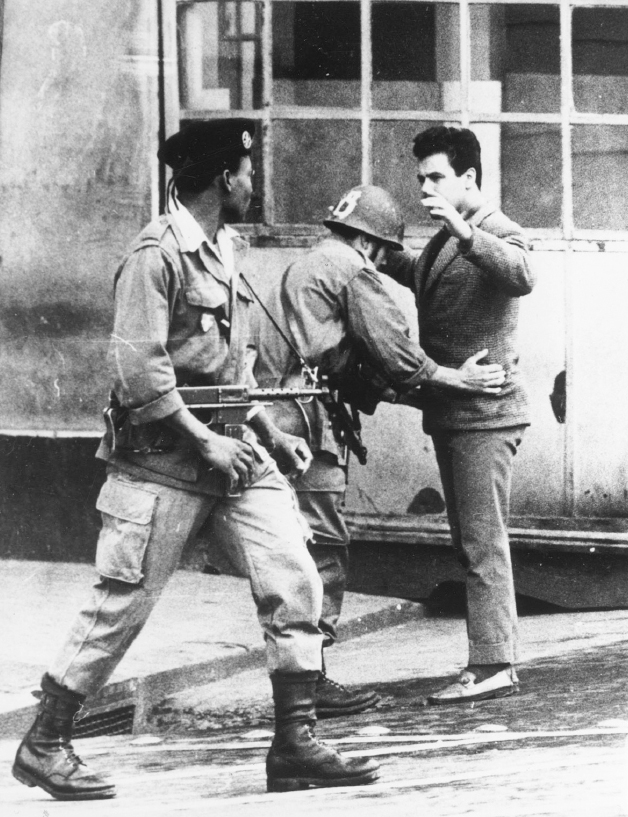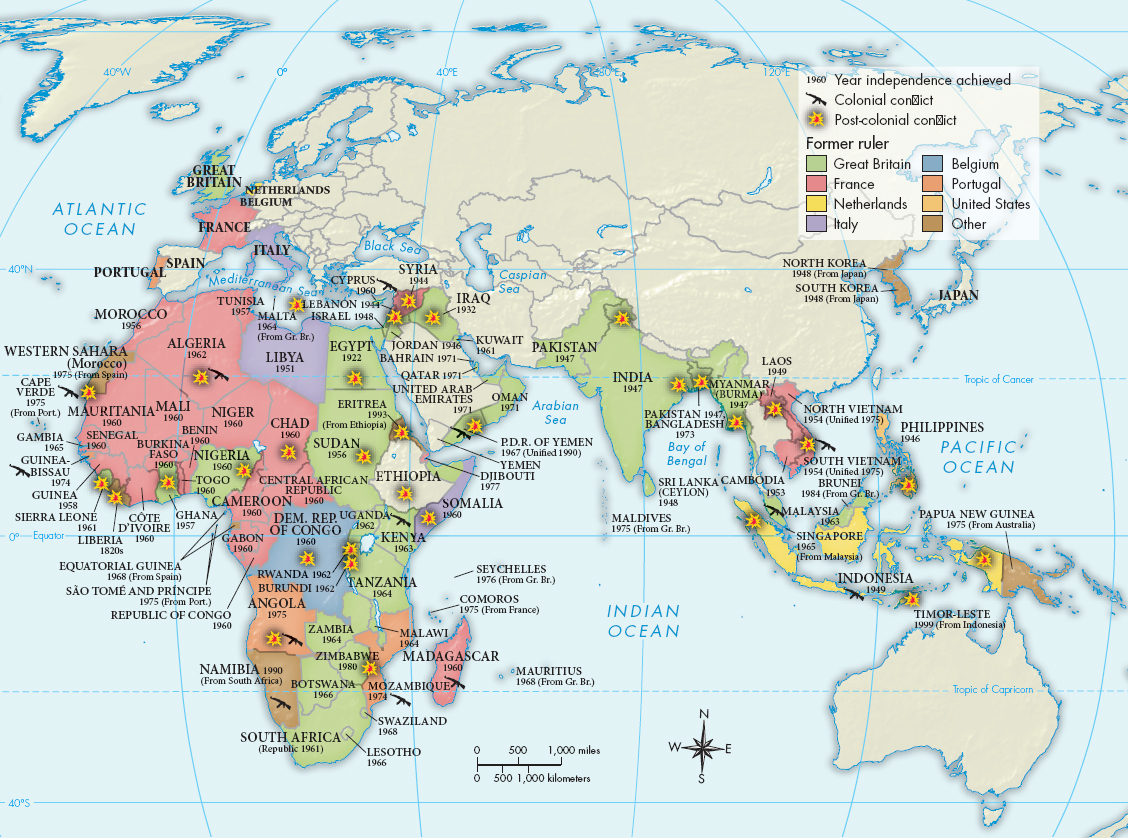What led to rapid decolonization after World War II?

A French Checkpoint in Algeria, 1962French soldiers search a civilian in Algiers, the capital of Algeria. Inspired by a potent mix of communism and Islamic radicalism, the Algerian National Liberation Front fought a lengthy and bloody struggle against the French colonial government that finally led to Algerian independence in 1962. (Agence France Presse/Getty Images)
IIN THE POSTWAR ERA, Europe’s long-standing overseas expansion was dramatically reversed. The retreat from imperial control — what Europeans called decolonization — remade the world map (Map 28.3). In some cases, decolonization proceeded relatively smoothly, with an orderly transition and little violence. In others, the European powers were determined to preserve colonial rule, and colonized peoples won independence only after long and bloody struggles.
The Cold War had a profound impact on decolonization. Independence movements often had to choose sides in the struggle between the superpowers. After independence was won, both the United States and the Soviet Union struggled to exert influence in the former colonies, where, in many cases, economic growth and political stability remained elusive. Liberation from colonial domination was a proud achievement that brought fundamental gains in human freedom but left lasting problems for the former colonized and colonizers alike.

MAP 28.3
Decolonization in Africa and Asia, 1947 to the PresentDivided primarily along religious lines into two states, British India led the way to political independence in 1947. Most African territories achieved statehood by the mid-1960s as European empires passed away, unlamented.

